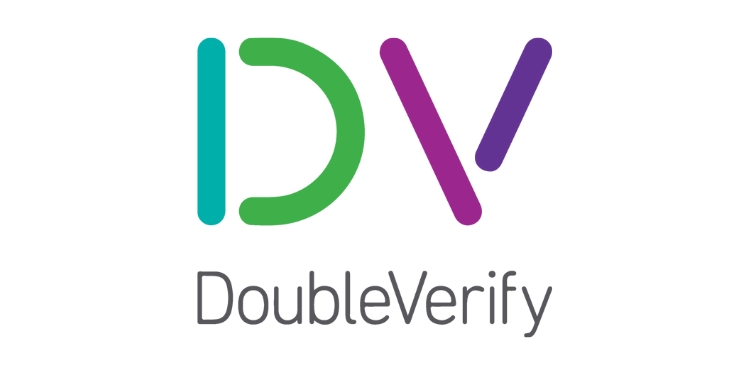New York is likely to become the first state in the nation to largely block social media companies from using addictive algorithms on children and teenagers.
An agreement reached late on Monday between Democratic Gov. Kathy Hochul and state lawmakers sponsoring legislation to limit social media platforms’ reach to minors will prevent platforms such as TikTok and Instagram from showing algorithm-based content feeds to underage users without express consent from a parent or guardian. Instead, younger users would only see content from accounts they follow in order of when it was posted — hearkening back to the early days of social media and moving away from the algorithm-based feeds designed to keep people engaged on platforms for longer.
The state Senate introduced the revised bill, which was months in the making, on Monday. The Assembly is expected to introduce the final measure after discussing it in a private conference on Tuesday evening. From there, lawmakers are currently on track to approve the proposal before ending their legislative session later this week.
But major questions remain about exactly how the state will require social media companies to verify a user’s age. That could determine whether the measure is ultimately effective in its aim of protecting children’s mental health.
The bill largely leaves the question of age verification up to state Attorney General Letitia James, who helped push for the measure’s passage. According to the legislation, the attorney general’s office will be tasked with identifying “commercially reasonable and technically feasible methods” for companies to verify user’s age, including options that don’t require a government ID — a major concern for organizations that advocate for immigrants.
Social media platforms “already know how old users are,” said Sen. Andrew Gounardes, a Brooklyn Democrat who sponsors the bill. “They know based on what [users are] searching for, based on what they’re looking at, what they click on. They already know what people’s ages are, so this is not incredibly more complicated than what is already happening.”
The bill’s supporters say it’s meant to shield children and teens from the potential harmful sides of overusing social media. Critics including trade organizations like Tech:NYC — which represents YouTube’s owner Google as well as Meta, which owns Facebook and Instagram — question whether the legislation could have unintended consequences, especially when it comes to filtering out potentially harmful content.
New York City high school students have reported mixed effects from using social media. A 2023 survey of city teens found that those who used social media daily were more likely to report feeling worried about their family, friends and future than those who used social media less often or not at all, according to a new report from the city health department. But most of the teens surveyed, 56%, also said they used social media to cope with challenges in their lives, making it the second-most popular coping mechanism after listening to music.
The city’s health department did not immediately respond to questions on how many young people were polled as part of the report.
Germaine Lawson, a junior at Uncommon Collegiate Charter High School in Bedford-Stuyvesant, said he uses Instagram and TikTok to post about his life and look at funny memes. He said the apps are entertaining but can be too addictive.
“Sometimes I sit here in my bed and I scroll TikTok or Instagram Reels for about an hour, and that’s really crazy,” Lawson said. “I don’t even pick up a book sometimes, so I feel like I should probably do that or maybe use my time more wisely.”
Maalik Dubarry, another junior, said he logs onto apps like Instagram, Snapchat and TikTok daily to see what his friends are up to and to look at sports content. “My mental health is perfectly fine,” he said. But, Dubarry added, “if you got nothing going on, you’re bored, you can go on TikTok and just scroll and scroll and scroll.”
Gounardes and Queens Assemblymember Nily Rozic first introduced a bill aimed at curbing social media algorithms for minors last year, along with a companion measure that would restrict the type of data that social media companies can collect on users under the age of 18. The effort received a boost in January, when Hochul included both measures in her state budget proposal. But the bill fell out of the final budget agreement in April after pushback and threats of free speech lawsuits from tech trade groups.
“Our legislative intent is very clear,” Rozic said. “This is about protecting minors and young people.”
In a statement on Tuesday, Tech:NYC President and CEO Julie Samuels said the bill has some positive elements. She praised lawmakers for removing a measure that would have allowed individual parents and guardians sue social media companies for violations — a change that tech organizations had pushed for.
Samuels said the bill doesn’t specify how social media companies would be required to verify a user’s age, which has been one of her organization’s concerns all along. “Age verification is the single most important factor in determining whether this legislation will actually help kids, and the practice of punting complex issues like this to an opaque rulemaking process has proven to be an ineffective form of lawmaking,” she said in a statement.
The bill makes the attorney general’s office responsible for creating a menu of options for social media companies to determine a user’s age, and “appropriate levels of accuracy” for feasibly determining whether a user is a minor. At least one of those options must not require a government ID or must otherwise allow a user to remain anonymous.
Hochul has used her bully pulpit to press for the bill in recent weeks. She previously said the measure would require more than a user simply entering their birth date to verify their age, but she declined to offer more specifics.
In an interview with NPR on Monday, the governor pointed to online gambling sites as an example of how some companies are already being required to block children and teens from their platforms. “There are ways to restrict based on not just age, but other information,” Hochul said. “And I think that’s essential that this information be provided, that we know who the young people are, that the companies know who they are and they’ll be held responsible.”
The attorney general’s office, which would have to enforce the measure, could sue social media companies for violations and seek financial damages on behalf of users. But the algorithm restrictions would not become effective for some time.
As designed, the law wouldn’t take effect until 180 days after the attorney general’s office finalizes its regulations in a lengthy process that would take at least several months. From there, James’ office wouldn’t be able to enforce the measure for another 180 days.
Gounardes, the state senator, said he anticipates that the legislation could face a lawsuit from tech companies, some of whom have argued that restricting their algorithms amounts to violating free speech rights. He said the bill was crafted to avoid restricting content on social media sites and instead focuses on regulating how content is presented to younger users.
“We wanted something that was big and bold and really as true to the original vision as possible, while also making sure that we did it in a way that artfully and smartfully ensured that we could survive legal challenge,” Gounardes said.



